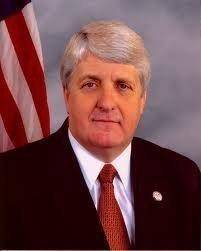Congressman Rob Bishop (R-UT), Chairman of the House Natural Resources National Parks, Forests and Public Lands Subcommittee, Thursday held a legislative hearing on the Action Plan for Public Lands & Education (APPLE) Act [H.R. 2852].
“Many Washington bureaucrats and lawmakers fail to recognize the unique challenges western states face due to the fact that they consist of millions of acres of untaxable federal land.В Funding education is one of those challenges. More than 50% of the state of Utah consists of lands that produce zero property tax revenue. Utah isn’t alone in this. In the West, one out of every two acres is owned by the federal government,” said Congressman Bishop. “While educators and administrators do the very best they can with the resources they have available, educational opportunities for our children should not be hurt by the West’s absentee landlord– the federal government.”
Tax revenue generated from private property is one of the greatest contributors to public education funding. However, states like Utah that consist of more than 57% federal lands find themselves at a severe disadvantage when it comes to generating funding for education. Schools in the West have some of the highest student to teacher ratios and have seen the smallest increases in per pupil spending due to the difficulty they have in generating tax revenue. The APPLE Act would help Utah and other public lands states address education funding shortages.
“When western states joined the union the federal government agreed to help offset the lack of education funding that could otherwise be generated if the public lands were held privately. The APPLE Act helps ensure that the federal government makes good on their commitments,” Bishop added.
The APPLE Act was introduced on September 07, 2011 by Congressman Bishop. Senator Orrin Hatch (R-UT) introduced companion legislation [S. 1524] in the Senate. Specifically, the bill authorizes western states to select five percent of Bureau of Land Management (BLM) and Forest Service lands within their state to be sold or leased, with the generated revenue dedicated solely to public education. Wilderness areas designated by Congress, trust lands, National Historic Sites or lands located within a military reservation area are excluded from lands that may be selected by the States.
“The APPLE Act addresses one of the many unique challenges facing western states,” Senator Hatch said. “The vast amount of public land in Utah has hampered the funding for Utah’s education system. This bill will allow us to expand our tax base and provide a significant source of revenue for Utah’s schools. I’ll continue to push for the Senate to follow Congressman Bishop’s strong leadership on this issue and move forward with this legislation soon.”

